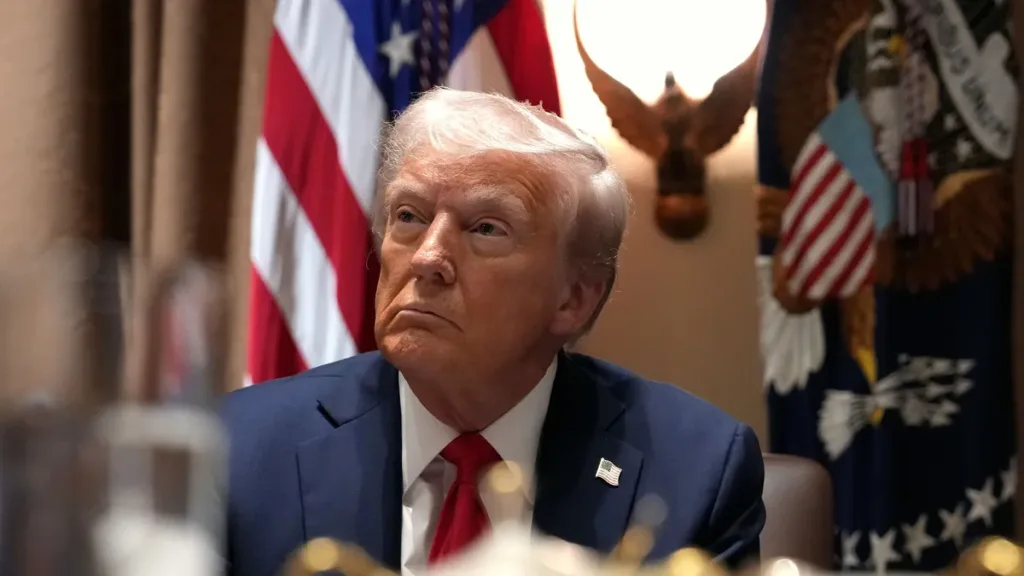Ghana Trade Associations Unite Against New US 10% Tariff on Exports
Key Ghanaian Export Sectors Face Significant Threats from US Tariffs
Three of Ghana’s most influential trade associations have launched a united appeal to the United States government, urging a reconsideration of the recently imposed 10% tariff on Ghanaian exports. The Ghana Union of Traders Association (GUTA), the Vegetable Producers and Exporters Association of Ghana (VEPEAG), and the Food and Beverages Association of Ghana (FABAG) have collectively voiced grave concerns over the potential economic damage these tariffs could inflict on thousands of Ghanaian businesses and export-oriented industries.
This coordinated industry response comes as the Ghanaian government commences formal negotiations with US authorities, seeking relief from a broader tariff regime that has affected several exporting nations, including Ghana. The situation has created significant uncertainty in Ghana’s international trade landscape, with potential ripple effects throughout the regional economy.
Vegetable Exporters Highlight Immediate Risks to Export Volumes
Speaking to Channel One Business, VEPEAG President Dr. Felix Mawuli Kamassah expressed measured optimism about the diplomatic efforts currently underway, while emphasizing the severe risks facing his industry.
“Our industry, especially yam exporters, is at serious risk,” Dr. Kamassah warned. “Some overseas buyers require freight to be prepaid, so this 10% increase could severely cut our export volumes.”
The vegetable export sector represents one of Ghana’s most promising non-traditional export categories, with products like yams generating significant foreign exchange and supporting thousands of smallholder farmers throughout the country.
Dr. Kamassah confirmed that diplomatic channels have already been activated: “We’re encouraged that the Ministry of Trade and Ministry of Foreign Affairs have already engaged the U.S. Ambassador. We’ll be meeting with the Ministry again this week to strategize on pushing for reductions—or ideally, the complete removal of the tariff.”
AGOA Extension Critical for Long-Term Trade Strategy
GUTA President Dr. Joseph Obeng added further perspective, highlighting the urgent need to review the African Growth and Opportunity Act (AGOA), which currently grants qualifying African countries duty-free access to U.S. markets but faces an uncertain future.
“These tariff hikes will disrupt trade. We want the government to advocate for a total removal of the charge,” Dr. Obeng stated firmly. “At the same time, we’re pushing for AGOA’s extension so we can strengthen our capacity and deepen our engagement with the U.S. market. AGOA is rooted in U.S. law, which gives us grounds to negotiate.”
The potential expiration of AGOA privileges combined with new tariffs creates a “double threat” to Ghanaian exporters who have invested heavily in developing products and supply chains specifically for the American market.
Market Diversification May Be Inevitable Response to US Tariffs
FABAG Executive Chairman John Awuni offered a pragmatic but concerning assessment, suggesting that the tariff could drive Ghanaian exporters to explore alternative, more favorable markets—potentially reducing America’s trade influence in the region.
“Tariffs are trade barriers—plain and simple,” Awuni noted with characteristic directness. “When costs go up, demand goes down. Exporters will naturally begin to look elsewhere.”
This potential market diversification reflects a growing trend among African export economies who are increasingly exploring opportunities with partners in Europe, Asia, and within the African Continental Free Trade Area (AfCFTA) when traditional markets impose new barriers.
Government-Led Negotiations Continue with US Officials
The Ghanaian government is maintaining active diplomatic channels with US trade representatives, focusing on securing targeted relief for the country’s export sectors. These discussions take place within the broader context of US-Africa trade relations, which have faced increasing complexity in recent years.
Trade analysts suggest that Ghana’s negotiating position may be strengthened by:
- Its status as a democratic anchor in West Africa
- Its historical compliance with AGOA requirements
- The strategic importance of maintaining strong US-Ghana relations
- The potential impact on thousands of smallholder farmers and SMEs
What This Means for Ghana’s Export Community
For exporters and businesses connected to international markets, the coming weeks will be critical as negotiations unfold. Industry associations have advised their members to:
- Prepare contingency plans for different tariff scenarios
- Document financial impacts to support government negotiations
- Explore potential cost-sharing arrangements with US buyers
- Investigate market diversification options as a hedge against tariff risks



